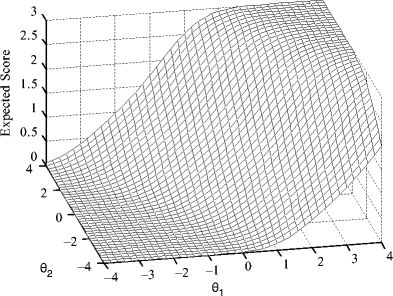Laila Issayeva M.Sc. articles

Selecting the Best Software for Digital Assessment, aka e-Assessment
Digital assessment (DA) aka e-Assessment or electronic assessment is the delivery of assessments, tests, surveys, and other measures via digital devices such as computers, tablets, and mobile phones. The primary goal is to be able

¿Qué es el escalamiento vertical en la evaluación?
El escalamiento vertical es el proceso de colocar las puntuaciones de las evaluaciones educativas que miden el mismo dominio de conocimiento pero en diferentes niveles de habilidad en una escala común (Tong y Kolen, 2008).
What is a z-score?
A z-score measures the distance between a single person’s raw score and a raw score mean in standard deviation units. It conveys the location of an observation in a normal distribution, of which scores on

Confidence Intervals in Assessment and Psychometrics
Confidence intervals (CIs) are a fundamental concept in statistics, used extensively in assessment and measurement to estimate the reliability and precision of data. Whether in scientific research, business analytics, or health studies, confidence intervals provide

General Intelligence and Its Role in Assessment and Measurement
General intelligence, often symbolized as “g,” is a concept that has been central to psychology and cognitive science since the early 20th century. First introduced by Charles Spearman, general intelligence represents an individual’s overall cognitive

Big Five Personality Traits: A Foundation for Modern Assessments
Personality plays a crucial role in shaping our behaviors, attitudes, and overall interactions with the world. One of the most widely accepted frameworks for understanding personality is the Big Five Personality Traits model—also known as

Speeded Test vs Power Test
The concept of Speeded vs Power Test is one of the ways of differentiating psychometric or educational assessments. In the context of educational measurement and depending on the assessment goals and time constraints, tests are

Factor Analysis: Evaluating Dimensionality in Assessment
Factor analysis is a statistical technique widely used in research to understand and evaluate the underlying structure of assessment data. In fields such as education, psychology, and medicine, this approach to unsupervised machine learning helps

Digital Badges for Skills and Credentials
Digital badges (aka e-badges) have emerged in today’s digitalized world as a powerful tool for recognizing and showcasing individual’s accomplishments in an online format which is more comprehensive, immediate, brandable, and easily verifiable compared to

The Graded Response Model – Samejima (1969)
Samejima’s (1969) Graded Response Model (GRM, sometimes SGRM) is an extension of the two parameter logistic model (2PL) within the item response theory (IRT) paradigm. IRT provides a number of benefits over classical test theory,

What ChatGPT brings us for item writing
Even those ones who do not consider themselves technology buffs have heard about ChatGPT. Today, everybody is talking about ChatGPT—a modern megastar of artificial intelligence (AI) and machine learning (ML) industries. This is how ChatGPT

Artificial Intelligence (AI) in Education & Assessment: Opportunities and Best Practices
Artificial intelligence (AI) is poised to address some challenges that education deals with today, through innovation of teaching and learning processes. By applying AI in education technologies, educators can determine student needs more precisely, keep

Gamification in Learning & Assessment
Gamification in assessment and psychometrics presents new opportunities for ways to improve the quality of exams. While the majority of adults perceive games with caution because of their detrimental effect on youngsters’ minds causing addiction,

Meta-analysis in Assessment
Meta-analysis is a research process of collating data from multiple independent but similar scientific studies in order to identify common trends and findings by means of statistical methods. To put it simply, it is a

Test validation: How to determine if a test score is supported?
Test validation is the process of verifying whether the specific requirements to test development stages are fulfilled or not, based on solid evidence. In particular, test validation is an ongoing process of developing an argument

Maximum Likelihood Estimation
Maximum Likelihood Estimation (MLE) is an approach to estimating parameters for a model. It is one of the core aspects of Item Response Theory (IRT), especially to estimate item parameters (analyze questions) and estimate person

Multidimensional Item Response Theory
Multidimensional item response theory (MIRT) has been developing from its Factor Analytic and unidimensional item response theory (IRT) roots. This development has led to an increased emphasis on precise modeling of item-examinee interaction and a

The IRT Item Pseudo-guessing c Parameter
The item pseudo-guessing parameter is one of the three item parameters estimated under item response theory (IRT): discrimination a, difficulty b, and pseudo-guessing c. The parameter that is utilized only in the 3PL model is
